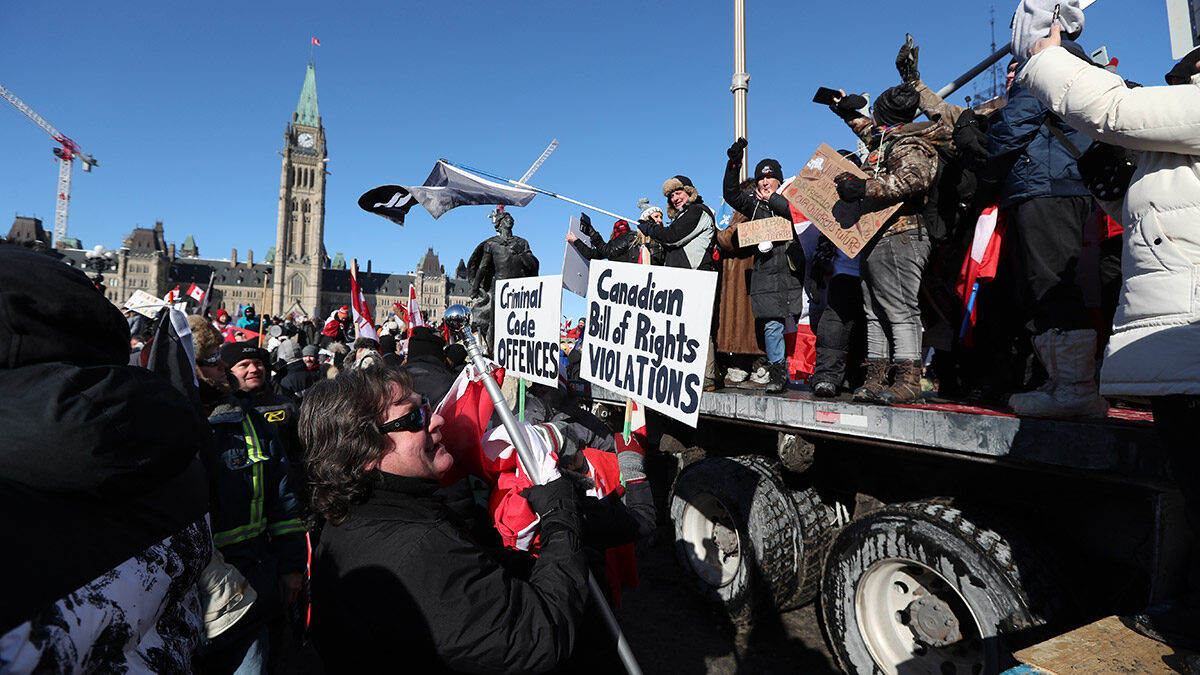With data showing that hate crimes continue to rise in Canada, advocates say still more needs to be done to combat this problem.
Fareed Khan, founder of Canadians United Against Hate, says the government’s efforts to combat the rise in hate crime have fallen short. Khan says, for example, negative portrayals of Muslims have been in public consciousness “for almost 40 years.”
“After 9/11 the door opened for the media to produce negative portraits of Muslims. We see Muslims usually play the role of criminals or terrorists,” said Khan.
“When you have these sorts of images in the public sphere consistently …, it is not surprising that you get a build-up of prejudice over time.”
Khan said the Trump era has exacerbated the problem. He says he believes Trump influenced the extreme right wing to spread hateful rhetoric that was heightened by increased public discourse and social media.
“What we have seen recently is a phenomenon of social media. The arrival of the Internet and then social media allows these sorts of people to communicate by giving them platforms that they have never had before,” he said.
A 2019 report by the Council on Foreign Relations found “hate speech online has been linked to a global increase in violence toward minorities, including mass shootings, lynchings, and ethnic cleansing.” More recently, a UN panel called on the social media giants to address online hate and discrimination.
During last year’s infamous “Freedom Convoy” occupation of the nation’s capital, swastikas and Confederate flags were spotted.
Statistics Canada has reported that hate crimes targeting religions — including the Jewish, Muslim and Catholic faith — rose 67 per cent between 2020 and 2021.
According to the data, reported hate crimes are most commonly targeted towards people because of race or ethnicity, followed by religion and sexual orientation.
Among incidents where religion is what Statistics Canada calls "type of motivation," the Jewish community was the most targeted group in 2021, with almost 500 incidents. Between 2020 and 2021 hate crimes directed towards Muslims rose 71 per cent and those directed towards Catholics experienced a 260 per cent increase.
The Statistics Canada report defines a hate crime as something that targets “integral and visible parts of a person’s identity and may disproportionately affect the wider community.”
In recognition of the rise in hate crimes, the federal government has allocated $85 million over four years to support a new Anti-Racism Strategy and National Action Plan on Combating Hate.
“Communities need to start working to defuse all this negative energy,” said Nazih Nasrallah, director of research at the Congress of Aboriginal Peoples.
Nasrallah says he wants to see systematic changes through education and when it comes to the fight against hate crimes in Canada.
“There's so much we need to do to offset (hate crimes) under the National scene on the domestic scene, right to the individual level, but also at governmental level,” he said.
“I think these incidents would have been reduced if, for example, there were more support systems including cultural, social, political and education programs.”
According to the Angus Reid Institute, Canadians who view religious and faith communities’ contributions as “very bad” or “more bad than good” have grown from 14 per cent in 2017 to 22 per cent in 2022.
The Canadian Anti-Hate Network says Canada needs to find a better way to measure hate incidents. The organization estimates only about one per cent of perceived hate crimes in 2019 were registered.
The network cites various factors for this underreporting including fear of further victimization, distrust of police, language barriers and police not considering the incident a hate crime.




